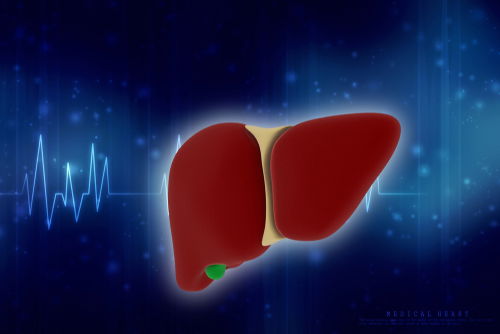Liver Gene May Eliminate Plateaus

Breakthrough research from the University of Southern Denmark has potentially uncovered a remarkable method to combat one of weight loss's most frustrating challenges experienced when trying to lose a substantial amount of weight, the dreaded metabolic plateau. Typically, when calorie intake is reduced, the body slows its metabolism, conserving energy and making further weight loss difficult.
However, the Danish scientists found a way to potentially overcome this barrier by targeting a specific genetic mechanism in the liver called PV-1 or PLVAP (plasmalemma vesicle-associated protein) that plays a key role in regulating how the liver burns carbohydrates and fat to produce energy. Normally, a shift in daily food intake or fasting shifts the energy source to trigger a metabolic slowdown.
Ater researchers suppressed the PLVAP gene in mice, their livers continued prioritizing carbohydrate burning, which allowed the mice to maintain elevated metabolic rate. This seamlessly prevented the typical energy-conservation (starvation mode) that often leads to a weight loss plateau. Developing drugs that target PV-1 and combining them with today’s prescriptive medications could eliminate frustrating plateaus.
NOTE: The University of Southern Denmark’s PV-1 study on metabolism was initially published in the journal Cell Metabolism. The team of research scientists included Daniel Hansen, Jasmin Jensen, Christian Andersen, Peter Jakobsgaard, Jesper Havelund, Line Lauritsen, Samuel Mandacaru, Majken Siersbæk, Oliver Shackleton, Jonathan Brewer, Blagoy Blagoev, Nils Færgeman, and Kim Ravnskjær (all from SDU). Collaborators from Japan, the USA, and Finland. Danish scientists suggest that targeting the PLVAP gene could be key to overcoming common barriers by offering new hope for those with significant weight-loss goals.
How Cells Trigger Metabolic Changes
The implications of the findings at SDU extend beyond just shedding unwanted pounds. The Dane’s discovery offers hope for not only for overcoming weight-loss barriers but also for improving metabolic health and well-being on a much broader scale. While these findings are still in the early research phase, they signal the potential for a new era of personalized weight-loss and metabolic therapies that could transform how we approach health and wellness.
PV-1 gene is found in hepatic stellate cells and plays a crucial role in helping the body switch energy sources from sugar (glucose) to fatty acids during extended periods of calorie reduction. Nonetheless, when the PLVAP gene was deactivated, the liver failed to recognize the fasting state at all and continued burning calories instead of shifting to fat metabolism. Although this metabolic adaptation was historically beneficial for human survival during food shortages, it interferes with modern dieting efforts.
Interestingly, scientists observed that disabling the PV-1 gene caused fatty acids from fat deposits to be redirected to skeletal muscles and bypass the liver entirely. This unique metabolic behavior highlights an entirely new mechanism for potentially regulating liver metabolism and opens doors for innovative weight-loss strategies that can address the body's natural tendency to conserve energy during reduced food intake rather than to continue shedding pounds at the same rate.
Kickstart Your Journey for Weight Control
The latest weight loss medications are revolutionizing obesity management by addressing underlying metabolic processes and reducing annoying food carvings. These medications work by mimicking hormones naturally produced by the body to control hunger, making it easier to maintain a calorie deficit without strict dieting. By regulating blood sugar levels and promoting satiety, receptor agonists, such as MRC’s compounded medications, not only support weight loss but also lowering the risk of weight-related metabolic conditions.
Originally developed to treat diabetes, receptor agonists have gained popularity for their effectiveness in aiding weight loss. These medications signal feelings of fullness, slow the digestive process, and suppress hunger, enabling individuals to consume fewer calories naturally. Administered through convenient once-weekly injections, MRC’s compounded medications help you manage appetite and enhance your body’s metabolic processing to promote efficient calorie and fat burning.
At Metabolic Research Center, we’ve been helping people just like you to achieve their long-term goals for weight management for over 40 years. Whether you prefer a prescriptive plan or a more holistic approach, MRC offers a science-backed program based on your body’s unique needs. Visit us at the medical weight loss clinic Waco to see how our experienced team can help you succeed. All it takes is a quick email or call to schedule a free consultation as your first step toward improving your metabolic health and wellness.
By submitting this form, you agree to receive marketing text messages from us at the number provided, including messages sent by autodialer. Consent is not a condition of any purchase. Message and data rates may apply. Message frequency varies. Reply HELP for help or STOP to cancel. View our Privacy Policy and Terms of Service.

